It Takes A Village: Cultivating Community Through Collaboration
We’d like you to meet Scott McGowan, One Planet Champion for our 7th One Planet Principle, Local and Sustainable Food. We asked him why he got involved with Grow and to share his thoughts on the One Planet program. Here is his response.
 I decided to get involved in the Grow project after meeting Jonathan Davis. He is a long time family friend of my wife, Haripurkh Khalsa , and previous student of her father Guru Singh. Jonathan explained the One Planet concept and I was thrilled. The core of The One Planet concept is exactly how I try to live my life, and exactly where we need to be striving towards with all development. I have an electric truck, electric tools and don’t use any pesticides or harmful chemicals in my work. I have spent the last 10-15 years planning and working on community gardens and I could not believe that a private development actually could be so focused on growing food as a means to build and create community!
I decided to get involved in the Grow project after meeting Jonathan Davis. He is a long time family friend of my wife, Haripurkh Khalsa , and previous student of her father Guru Singh. Jonathan explained the One Planet concept and I was thrilled. The core of The One Planet concept is exactly how I try to live my life, and exactly where we need to be striving towards with all development. I have an electric truck, electric tools and don’t use any pesticides or harmful chemicals in my work. I have spent the last 10-15 years planning and working on community gardens and I could not believe that a private development actually could be so focused on growing food as a means to build and create community!
The network of community gardens will create a better place for the residents by (1) reducing the amount of trips they need to take to the grocery store, 2) eating and living healthier lifestyles 3) building strong friendships and community 4) donating fresh foods to local food banks 5) educating residents and the broader Bainbridge community about growing food and building sustainable community through modeling and 6) providing fun community events in the beautiful outdoor garden spaces.
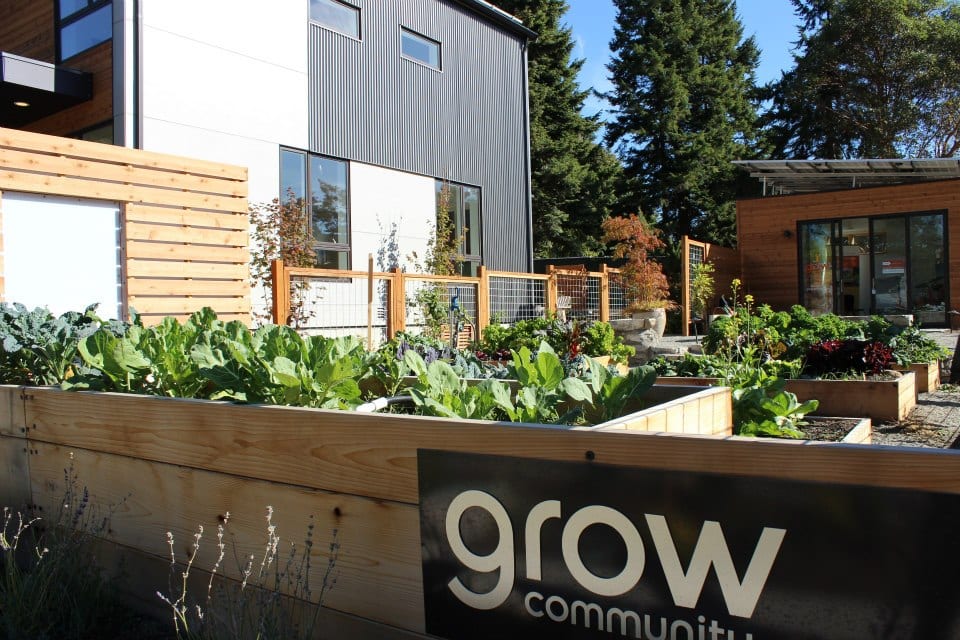 I believe that the network of community Gardens built into the overall design of the Grow Community is the key piece that can make this innovative concept work. Community gardens/farms take teamwork and community involvement to run. They will serve to connect neighbors in Grow with each other, and with the surrounding community.
I believe that the network of community Gardens built into the overall design of the Grow Community is the key piece that can make this innovative concept work. Community gardens/farms take teamwork and community involvement to run. They will serve to connect neighbors in Grow with each other, and with the surrounding community.
The shared goal for Grow is to provide an important educational opportunity for children and creating future advocates for community gardens.
A few weeks ago Scott engaged local elementary students from Madrona School in the first harvest of our welcome garden. The effort was part of an educational program in local and organic foods. The kids harvested, learnt to cook with some of the vegetables, and provided some to the local food kitchen at Helpline House on Bainbridge.
For more about Scott’s organization Alleycat Acres, click here.
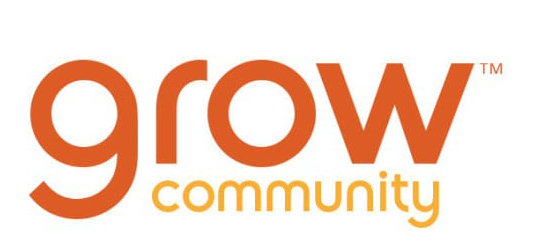
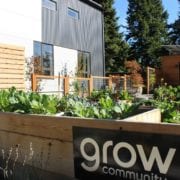

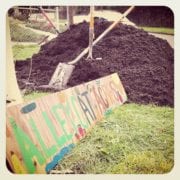
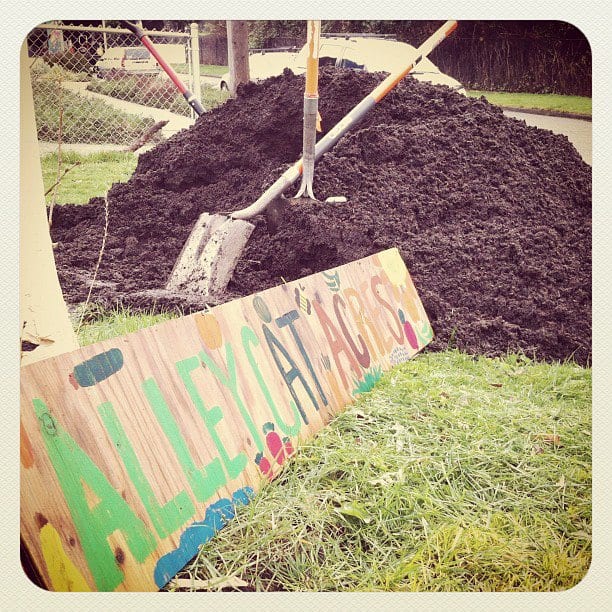 Our farms serve as community meeting grounds – allowing places for people who’d never normally meet to do just that — all while growing a healthier future. In the two years we’ve been growing, there’s been over 3,000 pounds of food harvested from all of the farms by the hands of more than 1,000 newly made friends – many of whom never have stepped foot on a farm or in a garden. All that produce that was grown? It went right back to everyone who helped it grow, along with one of three neighborhood based food banks that are close to each farm which is delivered by bicycle.
Our farms serve as community meeting grounds – allowing places for people who’d never normally meet to do just that — all while growing a healthier future. In the two years we’ve been growing, there’s been over 3,000 pounds of food harvested from all of the farms by the hands of more than 1,000 newly made friends – many of whom never have stepped foot on a farm or in a garden. All that produce that was grown? It went right back to everyone who helped it grow, along with one of three neighborhood based food banks that are close to each farm which is delivered by bicycle.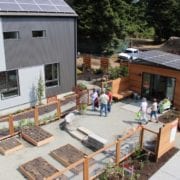
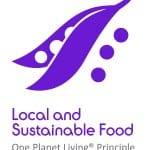 [
[